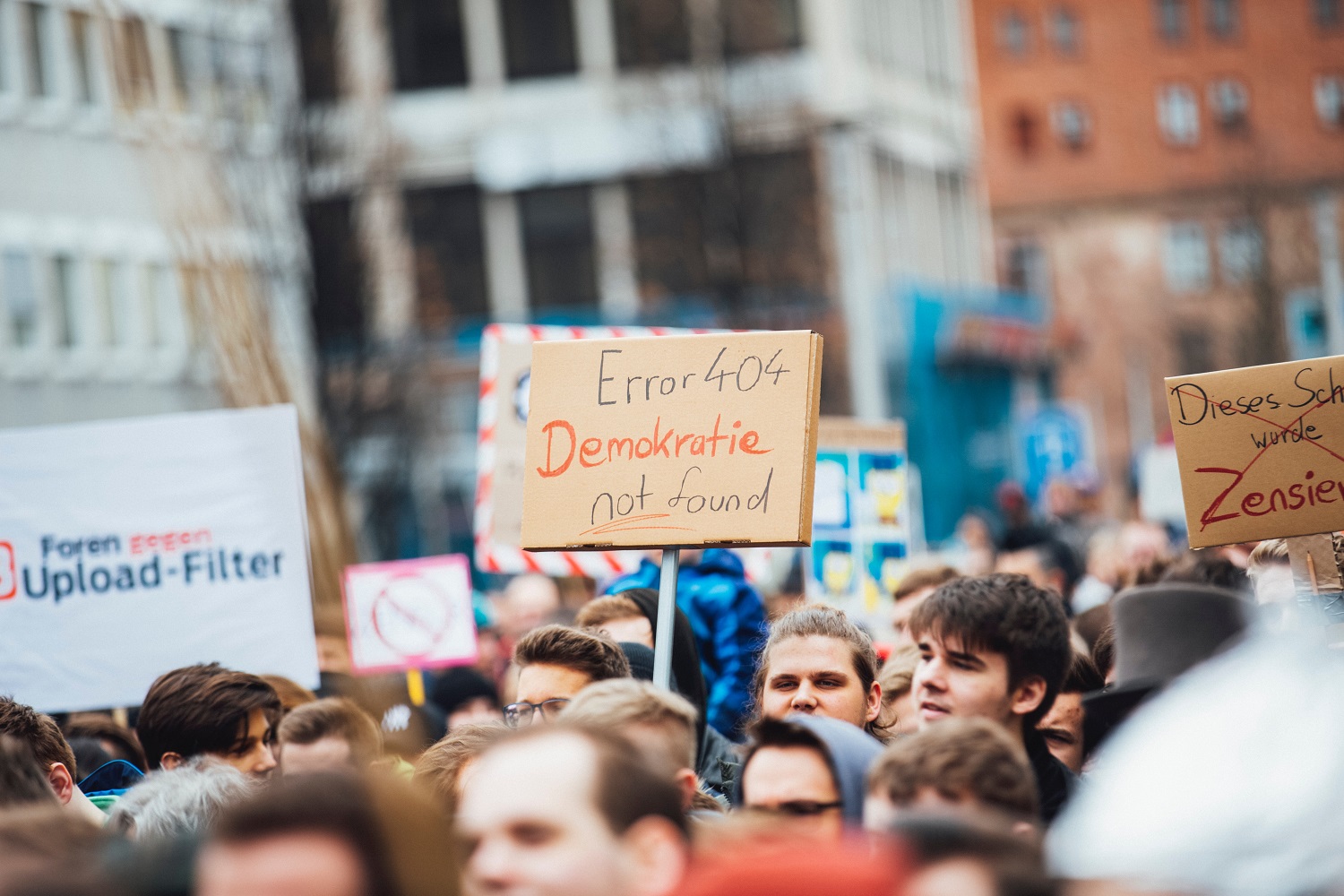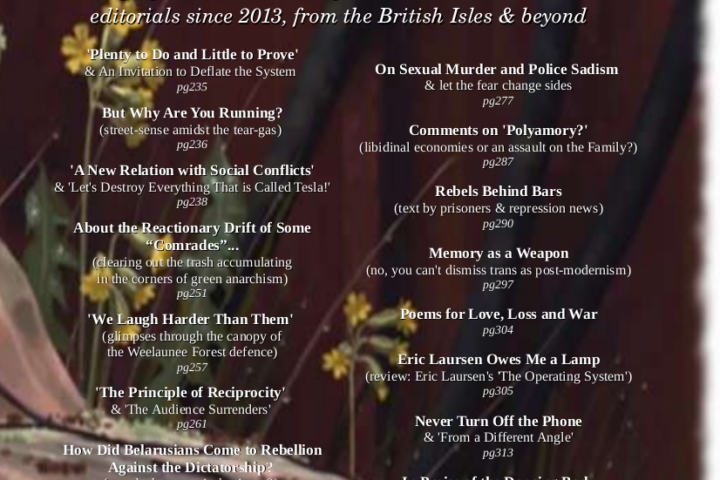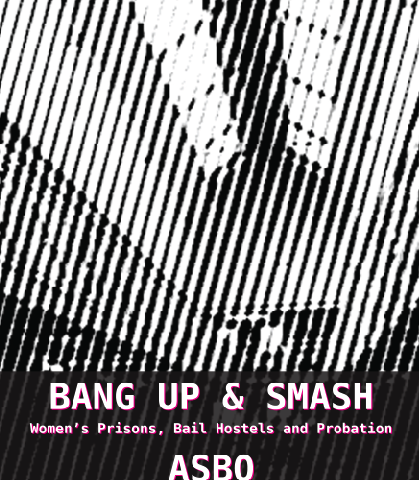Submitted to Autonomy News by Nathan Dean
How do we navigate the cognitive cacophony of being revolutionary, artistic, and paid?
What the border is to the immigrant, copyright is to the idea.
This has been a key phrase I’ve started using to try and explain my copyleft, open-source philosophy around my writing, but I feel this heavy-handed line both (a) supports an ongoing toxic narrative around immigration and (b) fails to accurately describe, without context, why I feel copyright (and our general views of the arts) are so harmful.
Before I continue, it must be stated that the world has greater ills to cure – both literally and figuratively – before we tackle, perhaps, the very nature of the author. We need more Baldwin’s, Ash Sarkar’s, and Marxists before we need more Roland Barthes’—but there are still parallels between the violent injustices that people suffer every day (especially people of colour), and that of how we treat the very idea of “the idea” itself. Let it be known however, that the physical distress must be solved first before the mental or the social: if our freethinkers are being suffocated, there is no point freeing their ideas.
The crux of the matter is that copyright denies people the right to share ideas as freely as they are created; if every time I quote a Beatles song I have to pay Paul McCartney, or if every time I want to sample them for a musical track, or depict him in my short film, I’d need the financial and legal clout to support my decisions artistically; this essentially gatekeeps the arts to those in the upper echelons, member of an elite like J. K. Rowling who purport the marketplace of ideas is being cancelled whilst using their legal acumen to silence the voices calling out her inherent transphobia. This goes beyond the plights we face as protesters, as ‘identity politicians’ (to use the term crudely): if only those with money can play with ideas, then we only get those ideas. Haruki Murakami, perhaps presciently, stated “if you only read the books that everyone else is reading, you can only think what everyone else is thinking” and currently we are predominantly reading the works of fascists.
But copyright is merely a product of this preposterous culture, invented from a place of good intent but easily warped in purpose by those in power. This is down to two ideologies that dominate how we view ‘the artist’.
The first, which I shall call The Conservative Position, is that artists should be paid. I tentatively, call it The Conservative Position, because it is focused around finances and arts capitalism (see: Larry Gagosian), but the name does lean towards abusing the working classes. But bear with me. The Conservative Position purports that all artists deserve payment to the point where they can survive from their art, because the arts should be treated like any other profession. The artist, like the plumber, has a specific set of skills that others do not have, and thus to be paid anything other than a living wage is tantamount to a hate crime. This is, of course, especially valuable to the working class artist who may starve if they do not sell that commission, or self-published book. But let us imagine a scenario: you go to the cinema to see a film, and pay not just for the ticket to see the film, but also to enter the cinema itself. You would decry this as capitalism at its most heinous, to pay to enter the building, as well as see the film itself. But the internet, even when you are the working class writer publishing on gumroad as a pay-what-you-feel download (me), are gatekeeping with this very model. You are not to blame for the model but when you have to pay to enter the cinema (internet provider) and then purchase the art work because you deserve to be paid (the film) you are merely adding to the greatest error within copyright, ownership, and payment—those without the dosh can’t access ideas.
The second, which I shall call The Labour Position, is that everyone is an artist, and to say that only some are artists (see: Larry Gagosian) is to once again gatekeep the potential for the artist. Artists do this to each other as well; how many times at the open mic does one poet tell another they aren’t ‘really’ a poet (also me, I apologise)? How many times has the guitarist without a recording studio been told they are not really a musician? The Labour Position states “everyone is an artist” and “all art is political.” “Arts for arts sake” is the lazy mantra of the futurist, the right-wing artist (yes, they exist). If everyone is an artist, everyone can supply work to the ongoing narrative; everyone’s voice is heard, from the lowliest racist white man to the most attuned transgendered POC.
But the combination of these two ideas – which are not shared by just the enemy, the right, but by the left as well – creates a cognitive dissonance that causes more harm than good. If we propose everyone is an artist, then it creates an environment of the hobbyist. The plumber, having a particular set of skills, is paid because he can provide something to society that others cannot; the artist, if everyone is indeed one, is not providing something specific any longer. They are merely doing what ‘nature intended’; they are merely acting on ‘the human condition’, and no lefty in their right-mind would agree to start charging people for their god-given abilities, right? But at the same time, if we say that only certain people are artists, then we have to (a) create the necessary instrument to determine this (which ends up being the gallerist art world people like Jerry Saltz critique) and (b) deny those who were not deemed artists enough to survive. On top of this, we know, instinctively, what is good or bad art: not every screen-printer is Andy Warhol, not every poet Gertrude Stein, not every musician Nina Simone—
And on top of this, if you do create an idea, it is yours, you own it. I wonder how far people would take this? If I dream of McDonald’s™ do I owe them money for using their brand without their permission? If someone writes a novel inspired by one of my own, where does inspiration begin and copying end? How many grains of sand make a pile?
So, we, as the artist, the revolutionary, are hit with a three-pronged cognitive dissonance, or shall we say, a cognitive cacophony: we deserve to be paid, but this gatekeeps our work. But if we don’t get paid we align ourselves with the artist as hobbyist, which leads to arts being cut in education. But if I treat myself as a specialist, then I—and around and around we go. And all the while, any of the ideas therein, can only be truly manipulated by those who can afford to do so. Not everyone can buy a Jeff Koons balloon dog. Not everyone can use VantaBlack™.
I am not here to tell you how you should ‘police’ your work, or how you should develop respect for your work; I am not here to be a further keeper of gates. The problem here is systemic, not individualist, so whatever you need to do to survive, I understand—especially as protesting should be our main concern. But capitalism doesn’t just brainwash the working classes into thinking transwomen aren’t women, that The Conservatives have you in their best interests, or that Brexit is a staunchly incredible idea; it also creates an environment (which I might also call brainwashing) where artists in-fight to try and create the most moral system for their work to be presented. This is noble, but impossible under the circumstances of my previously illustrated cognitive dissonance. Already I used a laptop to write this article, and it will contain zinc mined by African orphans; I assume you may be reading this on your mobile phone? To be immoral is unavoidable, but we can at least make our work as accessible as plausible.
I wish I could present you with easy solutions, but as we know, anything that rails against capitalism is rarely a simple fight. But I have some suggestions:
Universal Basic Income. If everyone can just survive – which we know 99% of jobs are for: paying for survival, and life – then the artist can flourish immediately. Personally, if I had UBI, I’d be capable of acting as both artist and for society in another (perhaps more practical) way. When those in power say that “artists should get a real job” I often want to reply with “yes, they should” and wonder when J. K. Rowling will work in the café she wrote Harry Potter in, or if Jeff Koons will use his art factories to produce something we all need—? Immediately work can be sold for a variety of prices, because all money earnt becomes disposable income; the economy then thrives. Why Conservative governments haven’t figured this out yet – especially for the most economically viable industry out of the lot, the arts – is beyond me; I can only conclude they enjoy watching the poor starve.
If UBI cannot be implemented (although it certainly should, and immediately) then we need to think about how our individual pieces of art (writing in my case, but anything across the gamut of creative pursuits) are accessed. I believe, in a world where we are unavoidably culpable, we should at least not build our own equivalents of what we rail against. Which leads me back, inexorably, to my original sentiment:
What the border is to the immigrant, copyright is to the idea.
Borders, in the fashion they are presented currently, prevent people from being safe (in the foremost) and prevent people from evolving societies, cultures, and industries in the longterm. I firmly approve of abolishing any kind of border: prisons, state lines, countries, the glass ceiling—and yet, for a long time, I published my books through Amazon™ (Jeff Bezos fails to cure world hunger every day) and then furthermore sold those books. I have created three borders immediately: the first is it can only purchased online; the second is that the book costs a price in it’s own right (and if I used coloured inks, was over £25); and the third, I am using an enterprise that supports the death of black workers. There is something to be said about unavoidable efficiency (we all need phones, the internet, et cetera), but I certainly could have made my work accessible without Amazon™.
I do not wish to be privy to inventing more borders to my work. I do not wish to run my theatre company with profits in mind; I don’t want to write books considering only the most profitable audience demographic. I want to experiment with my art in the same way a scientist experiments in their laboratory (and I imagine, hearing what the scientific academia is like, they too suffer from similar issues of copyright, and the border to ideas).
The kinds of people (I hedge my bets on this) who read my work are probably in as similar boat to me; educationally privileged, homed (probably renting), with very little disposable income. I want to allow these people to use my ideas in the way I have used others: quoting (in my case, without permission), adding to my metaverses, developing new stories, narratives, and experiments. If I placed upon them a regular copyright, it would immediately lock them down, and if I put a set price tag on my pieces then a huge swath of society is unable to access them at all.
I concluded, to increase the accessibility of my work within the boundaries I can control, that I would do the following with my work:
- Use a creative commons styled license so people can use my work however they wish
- Made all my work pay-what-you-feel so the rich can (if they are sincere) pay for one copy and allow someone else to download it for free
The only example of my work that has a fixed price tag is a situationist-styled prank at £400.
I am currently in a position where my work can be sold as such. I am, as of this writing, recovering from surgery and being cared for by my parents. I have a gentle flow of universal credit being stockpiled for when isolation disappears, and can spend every hour writing, and developing, my craft. I can afford to share my work for nothing, even if it is behind the paywall of the internet. I am in a privileged position – even with my new disability – of being able to sell my work for pay-what-you-feel with wild anarchic open-source rules attached to them.
I cannot, with my art, or even with my protesting (keyboard warrior-ing in truth) create an environment where all artists are safe, or are even privileged enough to follow my cry for anarchoauthorship. But I do ask that those in a similar position to I focus their attentions on two key factors:
- Make your work as accessible as humanly possible, or you are merely adding to the right-wing belief that the arts are nothing more than squabbling hobbyists with broken moral compasses
- Find a supporting role in your society; I believe, indeed, the Rowlings and Koons of the world should get a real job. And you should as well.
Point (2) isn’t just a conservative rallying warble that I think you are lazy; much the opposite. Make it a part of your art, if possible. Look at the systems around you and ask what you can crumble, deplete, abolish. If you can sell your art without copyright – the border of the mind – perhaps try and work somewhere that can break down the borders of society, of countries—
Remember, the only reason why we, as artists, are fighting so much about what ‘is art’, who can tame it, who can make it, and its value, is because capitalists want us to. Copyright sounds like a protective barrier between your work and the insincere hoards, but it denies people the right to create. Only journalists and satirists are allowed access to all ideas; what of the experimenter, the dramaturg, the fiction writer? How is the musician meant to pay for every sample? Of course, there will always be that one insincere aggravator who abuses copyleft; the elite will decry that the man who stole a book from Stephen King and claimed it as his own is a villain. But Stephen King has the wealth to survive a breach of his copyright, as do other elite creatives; it is the underdog who cannot survive these breaches. But in utilising copyright the underdog fails to note that there is an entire class even beneath them; a working class who cannot even access new ideas. What the elite is to the amateur, the amateur is to the forgotten classes. And don’t forget, if we give the right what they need to prove we creatives are useless whiny moralists, it gives them credence to cut the arts in our educational institutions. As an ex-teacher I’ve seen these subjects be defunded in real time, and it is because our cognitive cacophony renders artistic studies as facile. Don’t give them what they want.
It is easy to get wrapped in the intricate moralities of this kind of philosophy, but it boils down to a simple aphorism: the capitalists want you to think that ideas are commodities to be bought, sold, and owned. We cannot afford, as a disparate left, to keep fighting like this. The entire planet is one open mic, and we’re deciding who is invited.
Nathan T. Dean is a writer, artist, trainee counsellor, and practicing chaos witch based in Lincoln, UK.
You can find him at @wannabbonvivant on twitter, @nathatdeanwriter on facebook, @nathantdean on Instagram, and all his pay-what-you-feel novels, novellas, poetry, and scripts can be found at www.gumroad.com/nathantdean
Cover image by Markus Spiske on Unsplash




